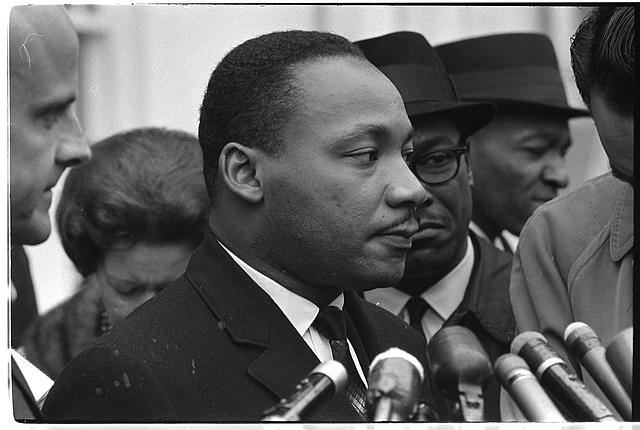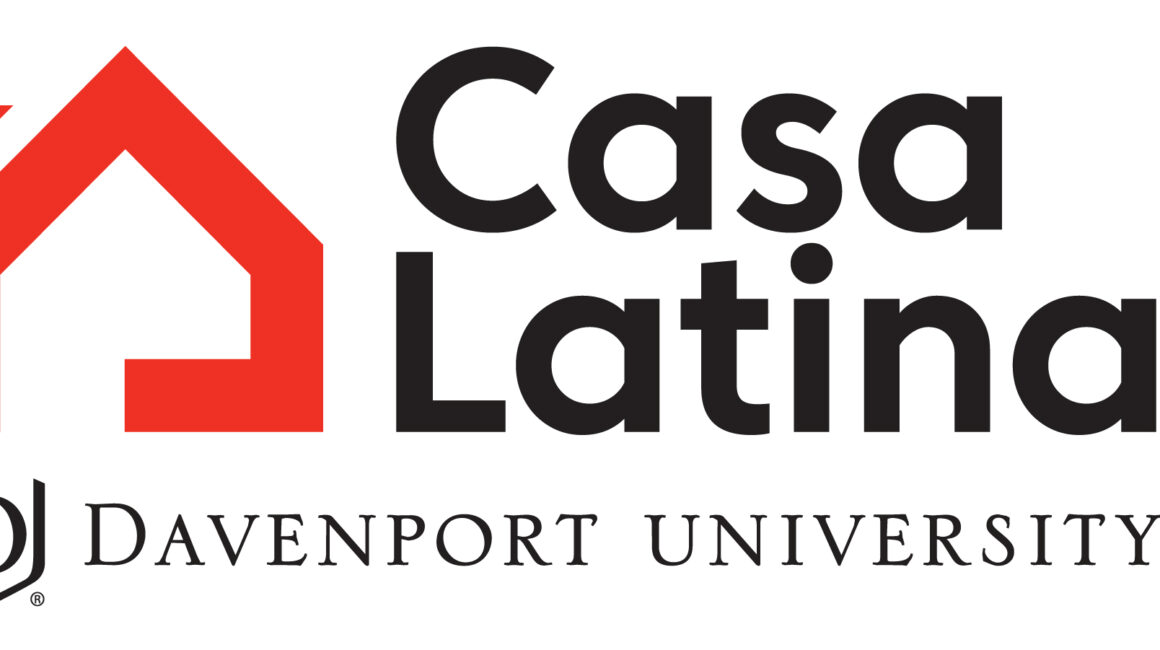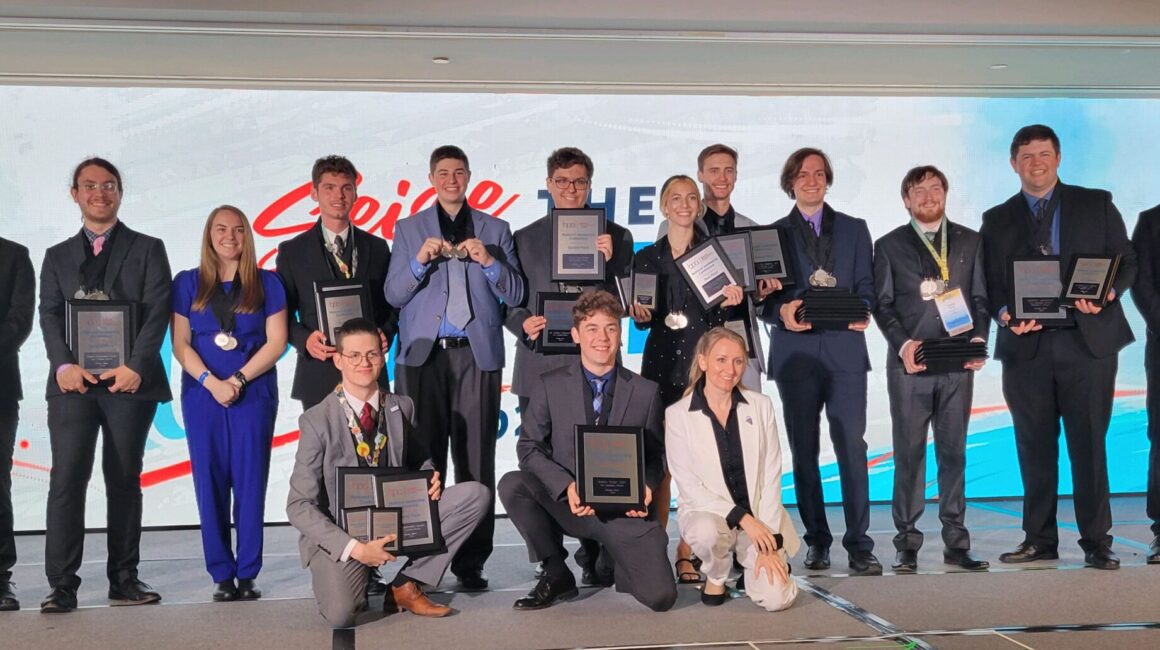

Leffler, W. K., photographer. Martin Luther King, Jr., Washington D.C, 1963. Dec. 3. Photograph Retrieved from the Library of Congress, https://www.loc.gov/item/2011648312/.
Martin Luther King, Jr. Day is quickly approaching and now is the time to reflect on how Dr. King’s lessons can be applied today. In an effort to continue the work of Dr. King, it’s important that we continue to have discussions and take positive action to ensure equity and inclusion for all groups who are marginalized or otherwise excluded.
We talked to Dr. Rhae-Ann Booker, DU’s executive director of diversity, equity and inclusion, to learn more about the 33rd Annual Dr. Martin Luther King, Jr. Commemorative Celebration, why Dr. King’s lessons are still so important today and what we can do promote inclusion within our own communities.
The 33rd Annual Dr. Martin Luther King, Jr. Commemorative Celebration will be held at the Fountain Street Church in Grand Rapids on January 21 and is free to all participants. Doors open at 5:30 p.m. Interested in volunteering at this event? Please contact Amy Stahley at amy.stahley@davenport.edu.
Not in Grand Rapids? Visit the MLK Day Guide for a list of activities that each of our campuses have organized or are participating in to honor Dr. King.
Why should people attend the 33rd Annual Martin Luther King, Jr. Commemorative Celebration?
The ideas of Dr. King apply to everyone in every community, regardless of any individual’s background. This event presents a wonderful opportunity to come together as a community to learn, reflect, and hopefully, to be open to taking action.
It also provides a platform to reflect on what it looks like to make positive contributions to the well-being of the community, and to think about some of the ongoing issues and barriers that prevent some from fully contributing or reaping the benefits of all that our communities have to offer.
If we have planned this event in the right way, I believe that everyone who attends and hears from the speakers should be compelled to take positive action that will make our communities more equitable and inclusive for all.
What’s the main take-away that you hope people have from this event?
We hope that everyone will walk away from the event feeling like they are a contributor to and a beneficiary of the type of world they want to live in. It’s also our hope that everyone feels like they are part of the discussion.
When we hear about different civil rights issues, we find that some people feel like they are part of the discussion and others don’t. We hope to honor Dr. King’s ideals by including all people in the discussion about community, equity and inclusion.
Why are the lessons of Dr. King still so important today?
Dr. King’s lessons are still important today because it’s so easy to forget that we must actively work to put these ideas into action if we are to affect change.
I think most of us wish that civil rights issues were no longer issues because we successfully addressed them, but we know that many issues of the ‘60s and ‘70s continue today. While there may be a focus on different groups and different needs, there are still many people who continue to be marginalized, exploited and excluded.
Martin Luther King, Jr. Day is a yearly reminder that we must continue to have discussions and take action to achieve these ideals.
On the idea of diversity, equity and inclusion (DEI), what do you see as the major benefits of promoting these ideas within a community and working toward them?
I think many people can relate to a time where they felt they had something to contribute that could be a benefit to their department, organization or neighborhood but, for whatever reason, there were barriers.
Whatever the barriers are, there are shared experiences around diversity, equity and inclusion that I hope leads everyone to realize that there are benefits from understanding our similarities and our differences. And that there could be benefits from working together to eliminate barriers, so groups and individuals that have been marginalized can have access to participate, too.
When diversity, equity and inclusion are leveraged effectively, these efforts should lead to maximum performance and positive outcomes for everyone in the community.
What are some of the specific things we do at Davenport to promote DEI?
The number one thing we do at Davenport is work to ensure the cultural competency of our students and employees. We provide DEI training to all new employees within their first 90 days. For students, one of nine learning outcomes of our Excellence System is global and intercultural competence – students are required to take courses linked back to this outcome.
We also have a five-year plan for advancing diversity, equity and inclusion that’s aimed at integrating DEI throughout all facets of the university, which aligns with the university’s overall strategic plan. We try to promote DEI in a way where everyone – regardless of where they’re at, where they’re working or what their major is as a student – is thinking, “What does DEI mean for me?”
What are some tangible things community members can do to contribute to DEI efforts?
Look around your neighborhood – I mean really look – and become more aware. Start to think about who you’re passing on the road. For example, the homeless can become invisible if you pass them every day. Notice them.
There are many things within our own neighborhoods that we see can be improved but we’re waiting on the next person to do something about it. Dr. King’s ideas call for each one of us to equip ourselves and to feel empowered, even required, to do something that affects positive change within our communities.
In addition to the event on Jan. 21, please join us for the Dr. Martin Luther King Jr. Celebration and Silent March at Davenport University in Sneden Auditorium on Tuesday, Jan. 22 at 12 p.m.



No Responses